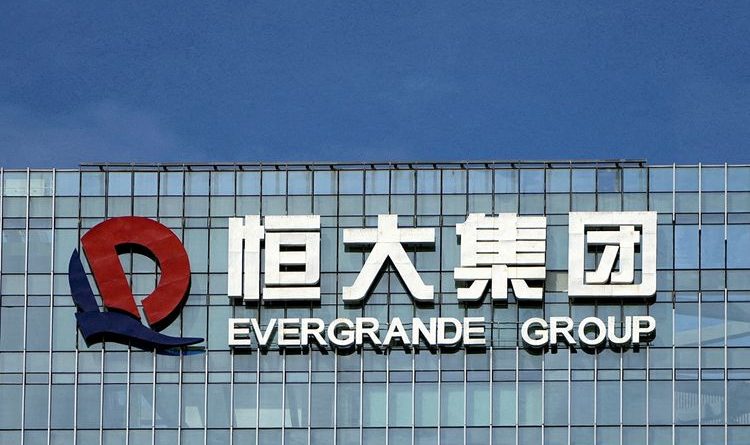China Evergrande Real Estate Company Liquidates
Madeline Kruszczynski
Staff Writer
On January 29, Hong Kong High Court Judge Lina Chan issued a directive for the liquidation of Evergrande, as reported by the Associated Press. Amid the collapse of Evergrande and the real estate market in China, the question arises: why does the liquidation of a private real estate developer in China carry repercussions for the global economy? The World Economic Forum, provides insight into the matter, revealing that Evergrande holds direct and indirect responsibility for approximately 3.8 million jobs annually. The prospect of liquidation thus raises concerns about mass unemployment and job insecurity for millions.
Beyond its primary role in real estate, Evergrande’s expansive reach extends into diverse sectors, including healthcare services, consumer products, and electric vehicles, according to CNBC. Consequently, the liquidation of Evergrande would reverberate across various industries, well beyond the confines of the real estate market, posing potential threats to China’s financial stability. The most frightening implication of this liquidation lies in its likely impact on global banks. The inability of Evergrande to fulfill its obligations to both domestic and international loaners implies significant losses on a global scale. While liquidation is still in its early stages, its consequences have yet to manifest at an international level. Nonetheless, economists project that the ramifications of Evergrande’s liquidation are poised to reverberate throughout the broader global economy in the coming weeks.
Evergrande emerged as a prominent figure in the Chinese real estate sector, reaching its peak valuation of $42 billion in 2017. Evergrande oversees more than 1,300 projects situated across 280 cities throughout China. The success of Evergrande elevated its primary stakeholder, Hui Ka Yan, to the ranks of Asia’s wealthiest individuals, reports Forbes, however, this success was not long-lived.
The surge in the real estate market, coupled with the debt-ridden nature of the real estate market lends itself to economic instability, with risks related to the emergence of economic bubbles, excessive debt, and overleveraging. In 2022, amid the COVID-19 pandemic and heightened apprehensions regarding these economic issues, the Chinese government undertook efforts to address the challenges within the real estate sector. President Xi Jinping announced a series of measures designed to safeguard China’s economic well-being. As reported by The Guardian, these measures included extending credit support to housing developers burdened by severe indebtedness, facilitating deferred-payment loans for prospective homebuyers, and imposing limitations on the extent of debt that real estate developers can incur.
The significance of these interventions was underscored by Ting Lu, Chief Economist at Nomura in China, who wrote, “We view this (the tightening of restrictions) as the most crucial pivot since Beijing significantly tightened financing of the property sector.” This strategic shift in policy reflects the fears of the Chinese government, with discernible emphasis on minimizing risks associated with the real estate market and fortifying the economic resilience of the nation in the face of prevailing challenges.
These reforms proved ineffective in rescuing Evergrande, a corporate entity with an overwhelming debt burden amounting to $300 billion. China’s economy has experienced great changes over the past four decades, marked by economic reforms, political changes, and westernization. Beginning in the 1980s, the People’s Republic of China experienced an intense economic expansion characterized by pronounced surges in manufacturing exports, industrial production, and, most notably, real estate development, according to the Brookings Institution. Many economists have characterized this growth to be a nearly miraculous phenomenon, given the substantial escalation of the Gross Domestic Product (GDP) from $1.96 trillion in 2004 to $17.9 trillion in 2022, according to The World Bank.
The expansion observed in the Chinese real estate market was linked to a pivotal economic reform passed in 1978. This reform spearheaded a shift towards capitalist-style economic principles and an endorsement of private businesses, allowing the population to partially own land and derive financial gains from their labor. The main objective of these reforms was to alleviate the country’s widespread prevalence of poverty. As a result, the ensuing years witnessed an extraordinary annual growth rate of 8.1 percent in the country’s average GDP per capita, documents the International Monetary Fund.
These transformative reforms initiated the migration of the rural Chinese population towards urban centers, capitalizing on the new economic opportunities. The surge in the population of residents in urban regions then caused a heightened demand for real estate, prompting developers to expeditiously respond to the heightened market dynamics and benefit from the newfound policy framework that would allow them to financially benefit from their work. This symbiotic relationship between an expanding populace and responsive real estate developers significantly bolstered China’s economy for decades. Many real estate developers accumulated unprecedented wealth during this era, exemplified by leaders such as Hui Ka Yan, the principal owner of China’s largest real estate development firm, Evergrande. The financial affluence attained by individuals like Hui Ka Yan underscores the profound impact of the economic reforms on wealth accumulation within the real estate sector.
Image courtesy of Gulf News

